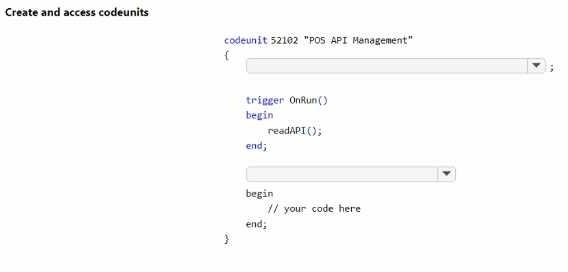Quiz
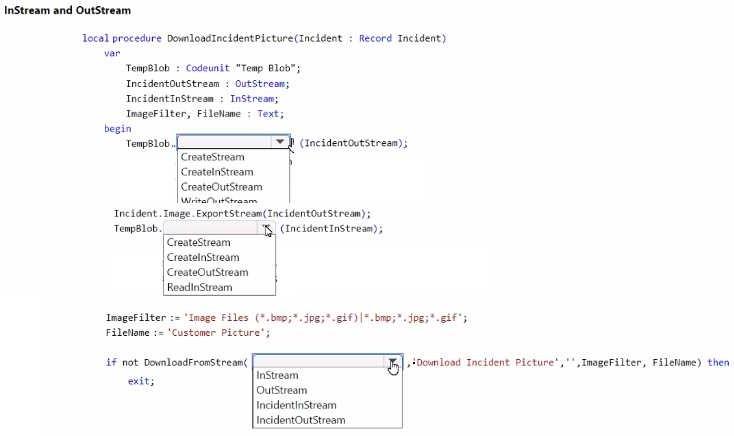
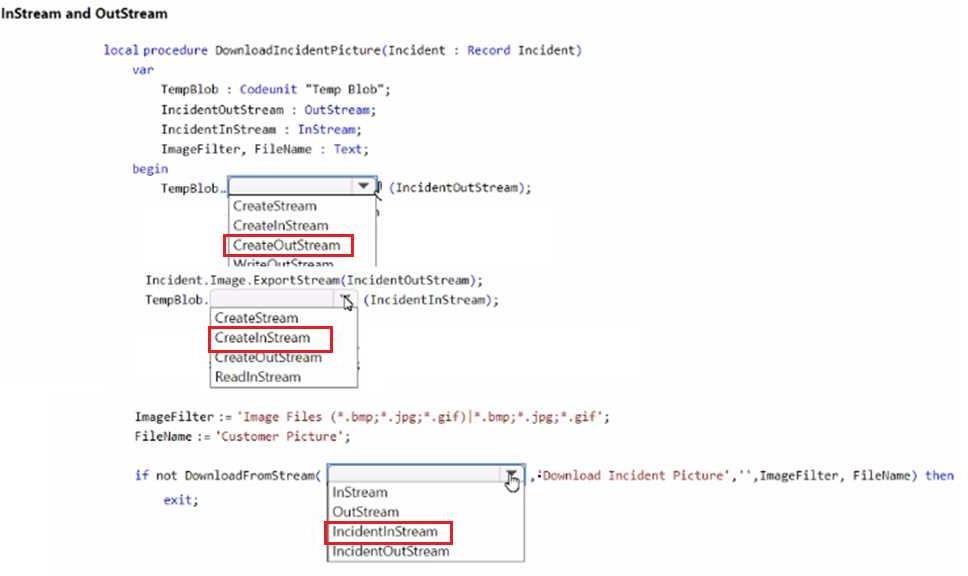
Quiz
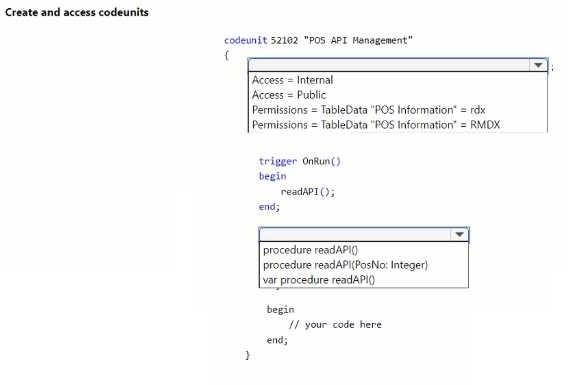
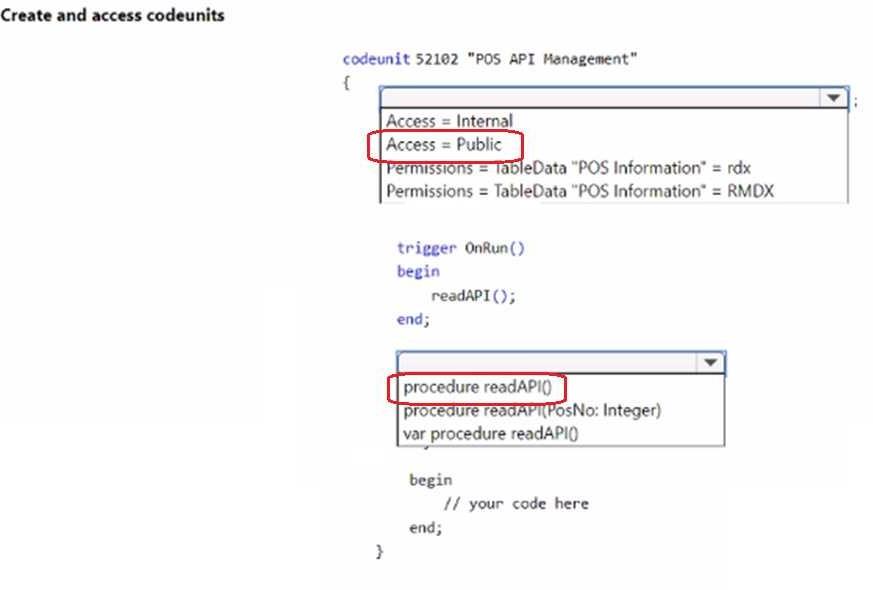
Quiz
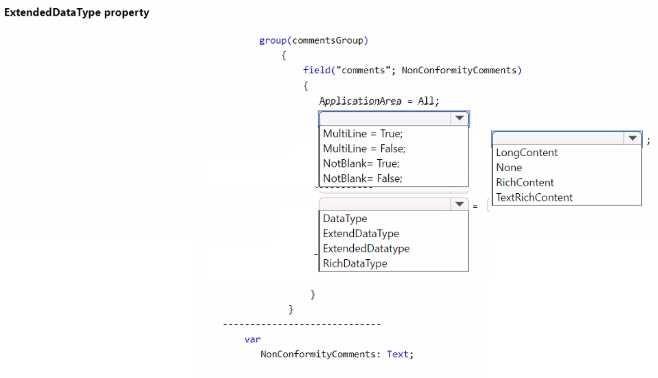
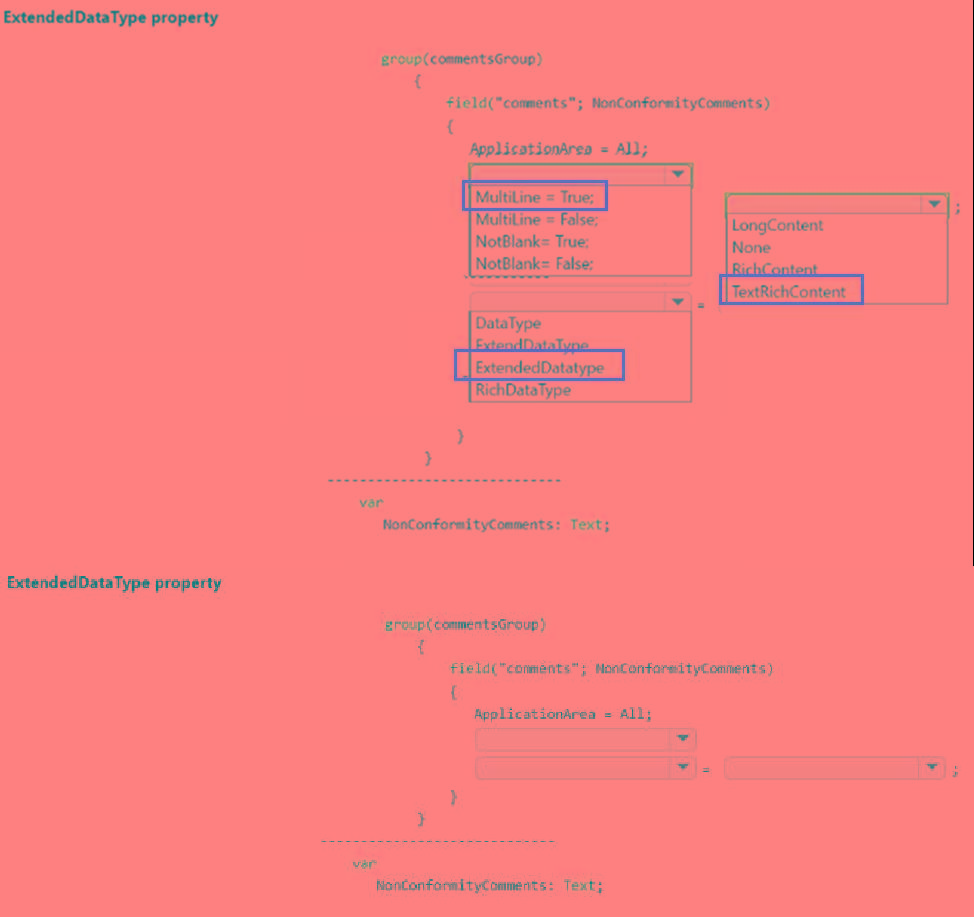
Quiz
Quiz

Quiz
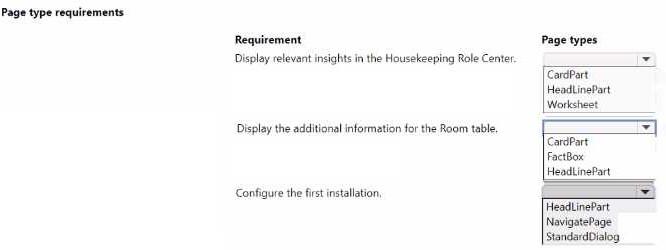
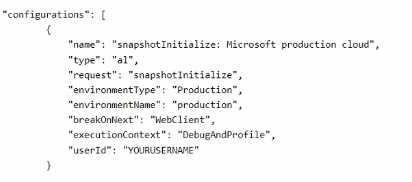 You discover that the debugging is not triggering.
Contoso, Ltd. must connect Business Central to the external API provided by the business partner.
This will be used for the partner to send the details of new subcontracting orders to fulfill the sales
demand, and for receiving the planned release date of each order sent. The integration requirements
are as follows:
• The business partner will provide a REST API secured with basic authentication. Credentials to
access the API will be shared with Contoso, ltd.
• The API for sending subcontracting orders must be called by sending an authenticated POST
request to the given endpoint.
• The API for retrieving the order no. and planned release date of each subcontracting order
responds with the following JSON:
You discover that the debugging is not triggering.
Contoso, Ltd. must connect Business Central to the external API provided by the business partner.
This will be used for the partner to send the details of new subcontracting orders to fulfill the sales
demand, and for receiving the planned release date of each order sent. The integration requirements
are as follows:
• The business partner will provide a REST API secured with basic authentication. Credentials to
access the API will be shared with Contoso, ltd.
• The API for sending subcontracting orders must be called by sending an authenticated POST
request to the given endpoint.
• The API for retrieving the order no. and planned release date of each subcontracting order
responds with the following JSON:
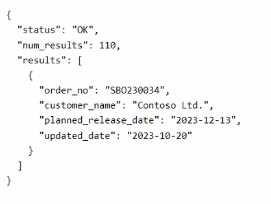 Each order no. must be retrieved.
Each order no. must be retrieved.Quiz

 You discover that the debugging is not triggering.
Contoso, Ltd. must connect Business Central to the external API provided by the business partner.
This will be used for the partner to send the details of new subcontracting orders to fulfill the sales
demand, and for receiving the planned release date of each order sent. The integration requirements
are as follows:
• The business partner will provide a REST API secured with basic authentication. Credentials to
access the API will be shared with Contoso, ltd.
• The API for sending subcontracting orders must be called by sending an authenticated POST
request to the given endpoint.
• The API for retrieving the order no. and planned release date of each subcontracting order
responds with the following JSON:
You discover that the debugging is not triggering.
Contoso, Ltd. must connect Business Central to the external API provided by the business partner.
This will be used for the partner to send the details of new subcontracting orders to fulfill the sales
demand, and for receiving the planned release date of each order sent. The integration requirements
are as follows:
• The business partner will provide a REST API secured with basic authentication. Credentials to
access the API will be shared with Contoso, ltd.
• The API for sending subcontracting orders must be called by sending an authenticated POST
request to the given endpoint.
• The API for retrieving the order no. and planned release date of each subcontracting order
responds with the following JSON:
 Each order no. must be retrieved.
Each order no. must be retrieved.Quiz





Quiz
Quiz

 You discover that the debugging is not triggering.
Contoso, Ltd. must connect Business Central to the external API provided by the business partner.
This will be used for the partner to send the details of new subcontracting orders to fulfill the sales
demand, and for receiving the planned release date of each order sent. The integration requirements
are as follows:
• The business partner will provide a REST API secured with basic authentication. Credentials to
access the API will be shared with Contoso, ltd.
• The API for sending subcontracting orders must be called by sending an authenticated POST
request to the given endpoint.
• The API for retrieving the order no. and planned release date of each subcontracting order
responds with the following JSON:
You discover that the debugging is not triggering.
Contoso, Ltd. must connect Business Central to the external API provided by the business partner.
This will be used for the partner to send the details of new subcontracting orders to fulfill the sales
demand, and for receiving the planned release date of each order sent. The integration requirements
are as follows:
• The business partner will provide a REST API secured with basic authentication. Credentials to
access the API will be shared with Contoso, ltd.
• The API for sending subcontracting orders must be called by sending an authenticated POST
request to the given endpoint.
• The API for retrieving the order no. and planned release date of each subcontracting order
responds with the following JSON:
 Each order no. must be retrieved.
Each order no. must be retrieved.Microsoft Dynamics 365 Business Central Developer Practice test unlocks all online simulator questions
Thank you for choosing the free version of the Microsoft Dynamics 365 Business Central Developer practice test! Further deepen your knowledge on Microsoft Simulator; by unlocking the full version of our Microsoft Dynamics 365 Business Central Developer Simulator you will be able to take tests with over 53 constantly updated questions and easily pass your exam. 98% of people pass the exam in the first attempt after preparing with our 53 questions.
BUY NOWWhat to expect from our Microsoft Dynamics 365 Business Central Developer practice tests and how to prepare for any exam?
The Microsoft Dynamics 365 Business Central Developer Simulator Practice Tests are part of the Microsoft Database and are the best way to prepare for any Microsoft Dynamics 365 Business Central Developer exam. The Microsoft Dynamics 365 Business Central Developer practice tests consist of 53 questions and are written by experts to help you and prepare you to pass the exam on the first attempt. The Microsoft Dynamics 365 Business Central Developer database includes questions from previous and other exams, which means you will be able to practice simulating past and future questions. Preparation with Microsoft Dynamics 365 Business Central Developer Simulator will also give you an idea of the time it will take to complete each section of the Microsoft Dynamics 365 Business Central Developer practice test . It is important to note that the Microsoft Dynamics 365 Business Central Developer Simulator does not replace the classic Microsoft Dynamics 365 Business Central Developer study guides; however, the Simulator provides valuable insights into what to expect and how much work needs to be done to prepare for the Microsoft Dynamics 365 Business Central Developer exam.
BUY NOWMicrosoft Dynamics 365 Business Central Developer Practice test therefore represents an excellent tool to prepare for the actual exam together with our Microsoft practice test . Our Microsoft Dynamics 365 Business Central Developer Simulator will help you assess your level of preparation and understand your strengths and weaknesses. Below you can read all the quizzes you will find in our Microsoft Dynamics 365 Business Central Developer Simulator and how our unique Microsoft Dynamics 365 Business Central Developer Database made up of real questions:
Info quiz:
- Quiz name:Microsoft Dynamics 365 Business Central Developer
- Total number of questions:53
- Number of questions for the test:50
- Pass score:80%
You can prepare for the Microsoft Dynamics 365 Business Central Developer exams with our mobile app. It is very easy to use and even works offline in case of network failure, with all the functions you need to study and practice with our Microsoft Dynamics 365 Business Central Developer Simulator.
Use our Mobile App, available for both Android and iOS devices, with our Microsoft Dynamics 365 Business Central Developer Simulator . You can use it anywhere and always remember that our mobile app is free and available on all stores.
Our Mobile App contains all Microsoft Dynamics 365 Business Central Developer practice tests which consist of 53 questions and also provide study material to pass the final Microsoft Dynamics 365 Business Central Developer exam with guaranteed success. Our Microsoft Dynamics 365 Business Central Developer database contain hundreds of questions and Microsoft Tests related to Microsoft Dynamics 365 Business Central Developer Exam. This way you can practice anywhere you want, even offline without the internet.
BUY NOW